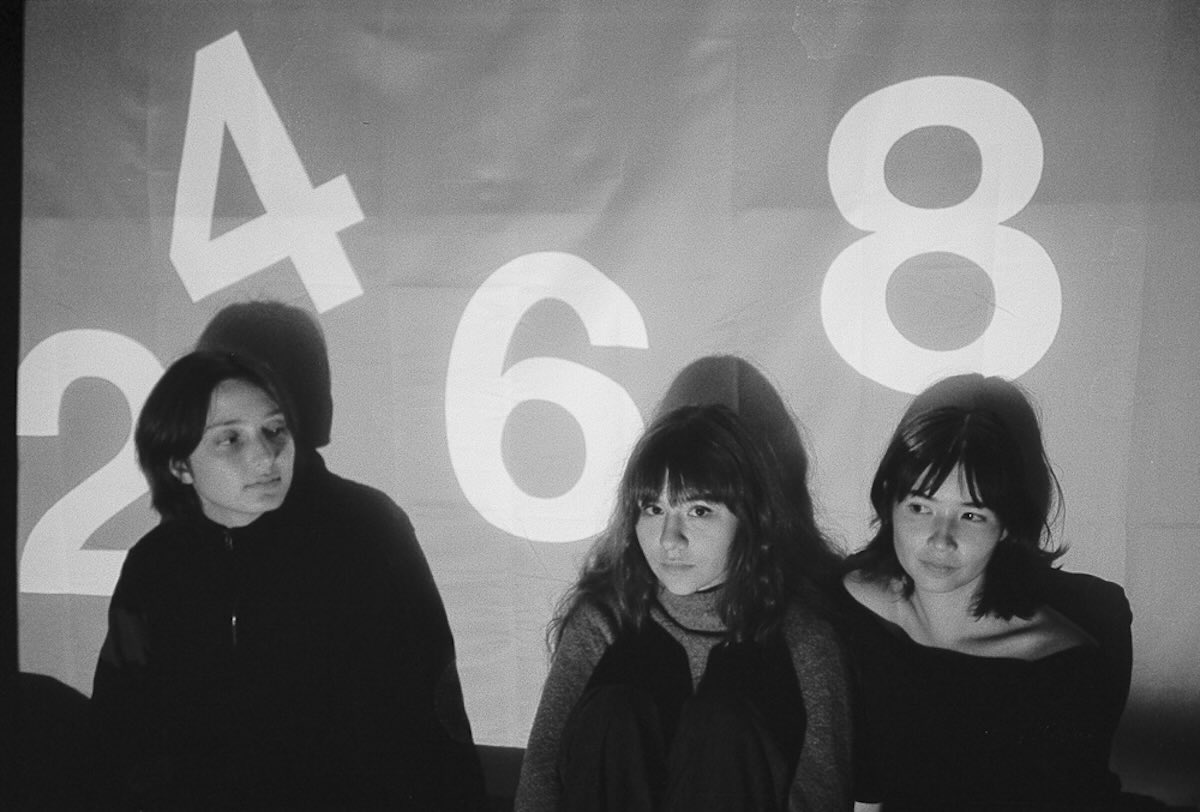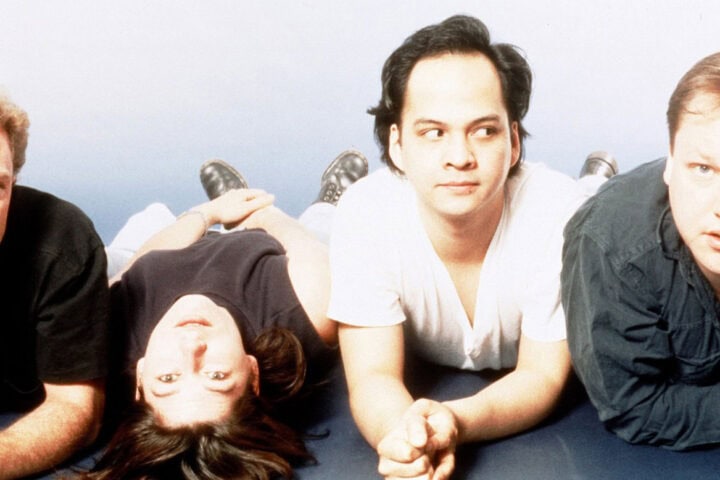Horsegirl’s Phonetics On and On emanates side-character energy. The peripheral perspectives across its 11 tracks are unassuming and sheepish (one song is even titled “Well I Know You’re Shy”). This attitude is complemented by a sound that’s more pared-down and less noisy than anything on the Chicago band’s 2022 debut, Versions of Modern Performance. It’s a cadence that verges on making Horsegirl’s unyieldingly pleasant music feel lightweight or simple, but that would miss the muscular synchronicity of the band’s members at their best, especially Nora Cheng and Penelope Lowenstein’s expressive guitar playing.
It’s telling that “Well I Know You’re Shy,” which details a narrator observing the world through their window, intimidated by “what happened out there,” boasts the most restless and angular axe playing on Phonetics On and On. The guitars are bolder than the lyrics or vocals, as if they’re manifesting the bravest version of the personalities presented here. There are whole verses on the album where the guitars nudge the vocals out of the way to take center stage.
Phonetics On and On is seemingly the result of what happens when a group of introverts discovers the power of the guitar. On “Frontrunner,” while her partner is sleeping or unavailable, the narrator can’t decide whether she can or can’t wait to see them, and the track’s two acoustic guitars go on a yearning, melancholic little run to work it out.
On the exhilarating “Information Consent,” Cheng sings that she’s “translating [her] talk to tones,” a neat summation of how all the guitars function here. The song trots along steadily and melodiously for about three minutes before things gloriously unravel into abstraction, the two guitars and bass becoming unstuck without ever disregarding each other entirely.
There’s also a rather moving plot thread (or the wisp of one anyway) introduced on “Rock City” about a “young man”—another of Horsegirl’s sensitive, sidelined observer characters—who’s “sickened by [a] sight.” Toward the end of the album, on “Sport Meets Sound,” we meet him again, after he’s blinked and 20 years have passed him by. On cue, the guitars weep for his torment, suggesting a mind startled into action after a long slumber.
This is a more well-formed album than Horsegirl’s debut, perhaps as a result of producer and indie-rock mainstay Cate Le Bon’s guiding vision. But that doesn’t mean that the band has made all the right choices. There are quite a lot of times—nearly every track, in fact—where the lyrics dip into just-vibes vocables like “la la la” or “da da da.” This can be enjoyably daffy, as on the stand-out “2468,” but by the time you get to the last couple of songs, it grows irksome.
The album’s regressive middle section, typified by the plodding “Julie” and, to a slightly lesser extent, “Switch Over,” is the sole place where the amiable playing and wallflower persona is so agreeable as to fade into the background. But Phonetics On and On otherwise capably splits the difference between conceptual sophistication and easy-breezy road-trip rock.
Since 2001, we've brought you uncompromising, candid takes on the world of film, music, television, video games, theater, and more. Independently owned and operated publications like Slant have been hit hard in recent years, but we’re committed to keeping our content free and accessible—meaning no paywalls or fees.
If you like what we do, please consider subscribing to our Patreon or making a donation.






